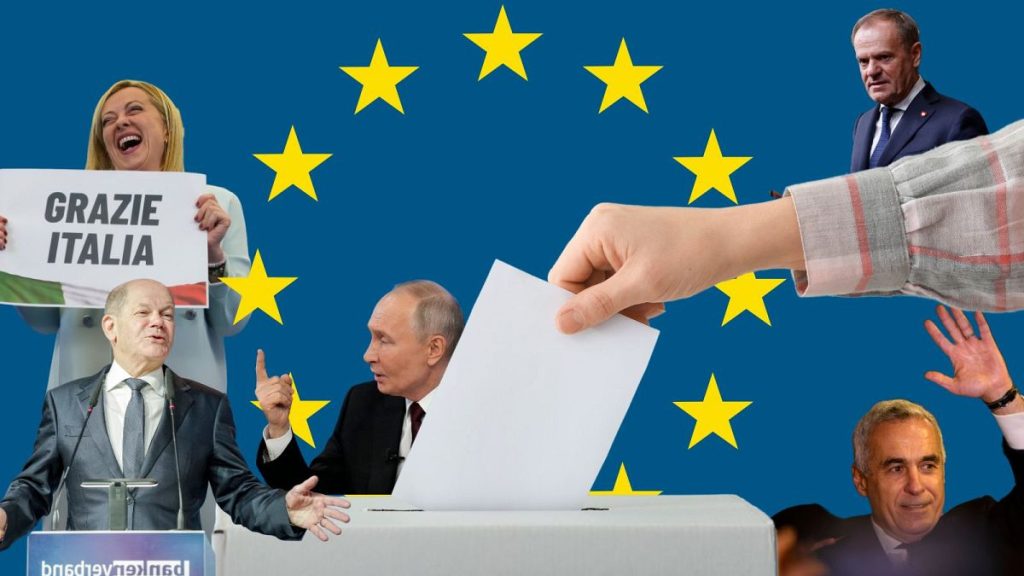The European political landscape is poised for significant transformation in 2025, with a series of crucial elections and referendums set to reshape the continent’s future and its relationship with the European Union. From Germany to Kosovo, these contests will address critical issues, including immigration, economic policy, EU integration, and the rise of populism. The outcomes will likely impact the EU’s cohesion, its ability to address global challenges, and the balance of power within the bloc.
Germany faces a snap election in February 2025 following a vote of no confidence against Chancellor Olaf Scholz. The far-right Alternative für Deutschland (AfD) is gaining ground, capitalizing on anti-immigrant sentiment fueled by a recent terrorist attack, while the center-right CDU, under Friedrich Merz, is projected to lead the polls. Merz’s potential chancellorship could signify a shift towards more conservative social policies and a more assertive foreign policy within the EU context. His focus on strengthening relations with France and Poland, coupled with a more critical stance towards the United States, could significantly alter Germany’s role within the EU.
Romania is grappling with the fallout of a potentially compromised presidential election, necessitating a new vote in the first half of 2025. Concerns over Russian interference, particularly the manipulation of social media to bolster the pro-Russian candidate Călin Georgescu, underscore the vulnerability of democratic processes to external influence. The subsequent investigation into TikTok’s role in the election will have far-reaching implications for the regulation of online platforms and their impact on electoral integrity across Europe. The eventual outcome of the Romanian presidential election will be pivotal in determining the country’s geopolitical alignment and its commitment to the EU.
Poland’s presidential election in May 2025 is effectively a referendum on the government of Donald Tusk. The contest between Rafał Trzaskowski, representing Tusk’s Civic Platform, and Karol Nawrocki, representing the opposition Law and Justice party, will decide whether Tusk can effectively govern, given the President’s significant veto power. A victory for Trzaskowski would strengthen Tusk’s mandate and potentially pave the way for substantial policy changes, while a win for Nawrocki could lead to further political gridlock and exacerbate existing tensions between the government and the presidency. The outcome will be a key indicator of Poland’s political direction and its relationship with the EU.
Several other European nations face elections with significant implications for the EU. In Czechia, the rise of populist Andrej Babiš and his ANO party raises concerns about a strengthening far-right axis in Central Europe, potentially aligning with Hungary’s Viktor Orban and Slovakia’s Robert Fico. His Eurosceptic stance and complacency towards Russia could further fracture the EU and complicate its efforts to maintain a unified front against external threats. Croatia’s presidential election features the incumbent Zoran Milanovic, a self-described nationalist, facing off against a pro-Western candidate. Milanovic’s opposition to supporting Ukraine and Croatian participation in NATO training missions highlights the growing divide within Europe over the war in Ukraine and the continent’s security architecture.
Norway’s parliamentary elections in September 2025 are witnessing the rising popularity of right-wing parties, mirroring a broader trend across Europe. The potential surge of the Progress Party and the Conservative Party could shift the country’s political landscape to the right and potentially impact its relationship with the EU, despite Norway not being a member. Similarly, local elections in Italy will test the stability of Giorgia Meloni’s government, potentially weakening her coalition and leading to further political instability in a crucial EU member state.
Several countries in Eastern Europe face elections under the shadow of authoritarianism and external interference. Belarus’s upcoming election is expected to be a foregone conclusion, with long-time dictator Alexander Lukashenko likely to maintain his grip on power amidst ongoing repression of the opposition. Russia’s elections, similarly, are expected to be tightly controlled, with limited media freedom and the suppression of dissenting voices. Georgia’s local elections will be a critical test of the country’s political direction amidst growing pro-Russian sentiment and ongoing protests against the government’s decision to postpone EU accession. Moldova’s parliamentary elections will be crucial in determining the country’s path towards EU integration, with pro-Russian forces still posing a significant challenge. These elections highlight the ongoing struggle between democratic aspirations and authoritarian influences in Eastern Europe, with significant implications for the EU’s eastern flank.
In the United Kingdom, local elections will serve as a barometer of public opinion following Labour’s return to power. The results will indicate whether Labour’s victory represents a lasting shift in the political landscape or a temporary reprieve from Conservative rule. The performance of Reform UK, Nigel Farage’s populist party, will also be closely watched as a gauge of the continued appeal of right-wing populism in the UK. Ireland’s presidential election, although largely ceremonial, will be a significant event marking the end of Michael D. Higgins’ long tenure. The potential candidacy of figures with EU experience, like Mairead McGuinness and Frances Fitzgerald, underscores the increasingly intertwined relationship between Irish and European politics.
Finally, Albania and Kosovo face elections that will test their fragile democracies and their aspirations for closer ties with the EU. In Albania, the dominant Socialist Party and the Democratic Party are locked in a bitter rivalry, with accusations of political persecution and corruption hindering progress towards EU membership. Kosovo’s election will determine the future of Prime Minister Albin Kurti’s Self-Determination Movement and its ability to govern effectively, potentially requiring the inclusion of opposition parties or representatives of the Serbian community. These elections will be pivotal in shaping the political trajectory of these Balkan nations and their relationship with the European Union.














